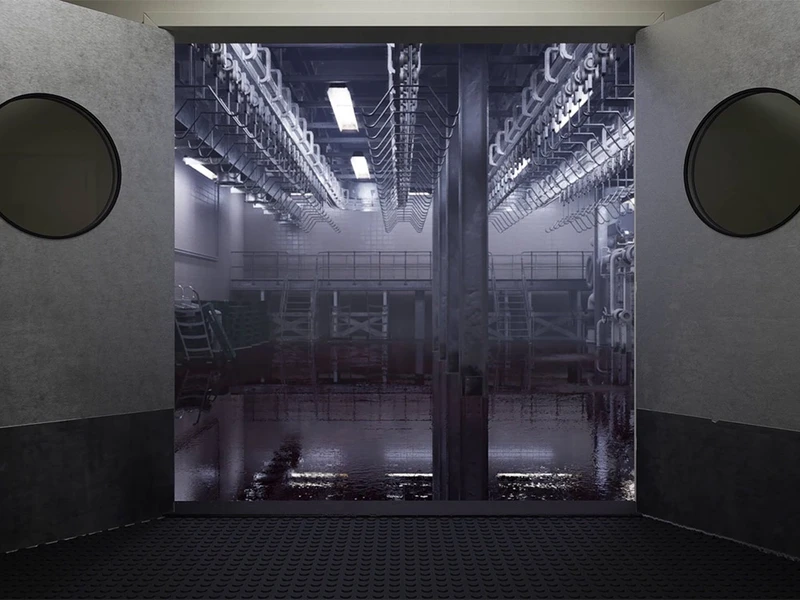Aria Dean: Abattoir
8 Feb-5 May 2024


Aria Dean: Abattoir is the New York-based artist’s first exhibition in the UK. The exhibition of the artist’s recent work explores the foundational relationship between modernity and death on conceptual and material levels. The ICA’s main gallery features Dean’s Abattoir, U.S.A.!, a site-specific film installation with immersive 8-channel sound. The animated film traverses the interior of an empty slaughterhouse. Rendered using the 3D computer graphics tool Unreal Engine, the film weaves the viewer through corridors and chambers, an imaginary patchwork of 19th, 20th and 21st century architectures. The film is mimicked in the ICA’s gallery through physical echoes of the virtual space. Composer Evan Zierk’s accompanying score samples field recordings, cinematic instrumentals, algorithmically generated sound, as well as a familiar pop cover. A new object-based work is presented alongside Abattoir, U.S.A.! in the adjacent gallery.
As an artist and writer, Dean is invested in a theoretical critique of representational systems, analysing how aesthetic theory, image networks and visibility map onto questions of race and power. The works on view continue Dean’s interest in addressing Blackness in terms of aesthetics in a way that doesn’t rely upon cultural signifiers and lived experience, but rather positions Blackness as a structural force and structural object. Abattoir, U.S.A.! is a response to two tandem questions that intersect concept and form: on the one hand, the literal and allegorical subject of the slaughterhouse as a particular collision of industrialisation, human and non-human actors, architecture, and death; and on the other hand, a response to structural film, which prioritises the processes and materials of filmmaking over narrative content.
The exhibition deliberates on critical functions of cinema and the origins of modernist architectures – topics long-debated within the ICA’s walls – and puts them in conversation with histories of industrialisation, anti-Blackness, fascism, and colonialism that demand urgent attention. Against a contemporary backdrop of systemic violence and subjugation, the analogy of the slaughterhouse and the question it poses of structuralised death as a cornerstone of modern life are more relevant than ever.